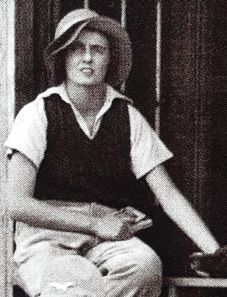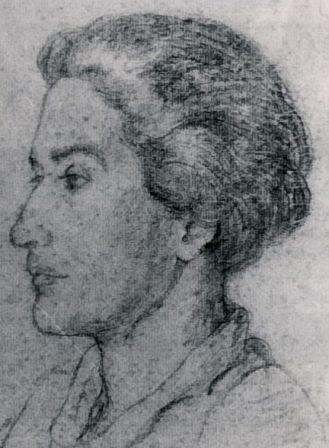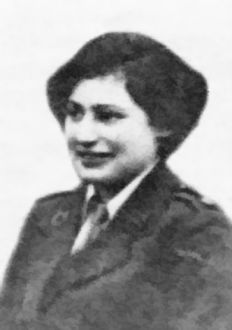Back to search results
Name: POWYS, Elizabeth Sophy MM, Mrs



Nee: Cross, dau of second son of Viscount Cross of Cheshire
Birth Date: 27 Jan 1896 Chelsea
Death Date: 27 Aug 1963 Nairobi
First Date: 1919
Last Date: 1963
Profession: Farmer
Area: Nanyuki
Married: 1. 14 Mar 1923 Alexander Douglas, KAR (1888-1968); 2. In Poole 19 July 1938 William Ernest Powys (1888-1978)
Children: 1. Mary Fidelia 'Delia' (Craig - see her entry) (5 June 1924 Nairobi-2014 Timau) 2. Catherine Rose (Dyer) (10 Aug 1934 Kenya6 Feb 2018); Charles William Assheton (12 July 1936 Kenya-24 Dec 1964 Nanyuki); John Gilfrid Llewellyn (15 Jan 1938-27 Dec 2017 trampled to death by an elephant on his ranch at Laikipia)
Book Reference: Midday Sun, Over my Shoulder, Foster, Curtis, Burke, Foster, Barnes
War Service: Won MM as a VAD in Flanders in WW1
General Information:
Soldier Settlement Scheme after WW1 - Class A - Miss E.S. Cross, The West Hall, High Legh, Knutsford, Cheshire - Farm 1222
Hut has Miss J.E. Cross.
Hut has Miss Elizabeth Cross later Mrs Douglas and Mrs Powys MM 1919 Ithanga Hills d. 1963
Foster - Alec's interest and skill in transport brought him into contact with Elizabeth Cross, (though their first recorded meeting was at a shooting party). Elizabeth had drawn, as a soldier settler, a farm at Makuyu, but the area was not at that time suitable for small scale mixed farming, and eventually the Bank foreclosed. Undaunted, Elizabeth rescued enough from the crash to start up business as a transporter from the railhead at Thika to Isiolo and beyond. Her courage soon became a legend which even the Samburu morans believed after a group of them had tried to steal some sugar from her. Elizabeth married Alec Douglas and they had a daughter, Delia. Later the marriage broke up, but Elizabeth remained in the Timau area managing the Llewellyn farm (Ol Donyo) in 1930 and 1931. In 1934 Elizabeth married Will Powys.
Midday Sun - 'Hers was the comfortable and peaceful background of a country house called High Legh, in Cheshire ....... On the outbreak of war in 1914 Elizabeth Cross, when she was barely 18, joined Queen Mary's Auxiliary Army Corps hoping to drive ambulances at the front ..... won the MM ..... invalided home with shell-shock. ........ (more) ...... entered the Soldier-Settler lottery on her own account and drew a block of land. ...... Her father gave her a rifle, a shot-gun and his blessing.
She sailed in the Garth Castle and reached Mombasa on Christmas Eve, 1919. The land she had drawn lay in the Ithanga Hills, not far from where we lived at Thika ........... she built herself a shack and shared it with a grey pony and a white bull-terrier, and found the attractions of hunting down the Tana irresistible. The manager of a nearby sisal plantation, van Breda showed her the ropes. ........... the northern frontier was a no-go area for women; even the wives of DOs were banned. Somehow, Elizabeth managed to get a permit, and van Breda went with her. She must have been one of the first European women to get as far as Marsabit ...... Osa Martin Johnson camped there round about the same time ......…
At some point in her travels, Elizabeth met and married a young South African called Alec Douglas, who had fought in the KAR during the war. They settled in the Nanyuki district, and a daughter, Delia, was born. After 3 years Elizabeth left her husband, and took her daughter first to England, then to Tanganyika, where the movement to open up the southern highlands round Iringa was getting under way. Elizabeth got the lease of about 1000 acres of untouched bush. She located the land, trained oxen to pull a plough, and made a fresh start on her own. Her mother arrived from England, made curtains for the unglazed apertures, and found Elizabeth's mud hut preferable to the grander house built by a couple from Kenya, where rats plopped off the rafters at night.
To tide things over before her first crop was harvested, Elizabeth bought a lorry for £200 and ran transport to Tukuyu on the border of Nyasaland along bone-breaking roads; 3 trips almost recouped the cost of the lorry. Life became easier when Lord Egerton of Tatton came down from Kenya, obtained the leasehold next to hers, and took her on as manager. For herself she planted onions, carrots, lucerne, potatoes and maize. She never went back to Alec Douglas, who eventually agreed, with reluctance, to give her a divorce.
A romantic and doubtless apocryphal story relates how the romance between Elizabeth Douglas and Will Powys began. One day, while still living near Nanyuki, she was riding across the veld and dropped her revolver. Will Powys came upon it, traced its owner and returned it to her, and in this way they met. Will, a friend recalled, with his tall and fine physique and his tight dark curly hair, 'looked like a young Apollo'. After the failure alike of her marriage and of the prospect of 'opening up' Tanganyika's southern highlands, Elizabeth, together with nearly all her fellow settlers there, returned to Kenya.
A lot of hopes were buried on those southern highlands. Elizabeth moved over to Kisima, and in due course she and Will Powys married. Elizabeth became every bit as hard-working and as sheep-orientated as Will. At shearing times, she would be up before dawn every morning and at the wheel of their lorry taking wool-bales to the station. She bore one more daughter and two sons. ........... She became a strong supporter of the Capricorn Africa Society ........
Foster - Alec Douglas's interest and skill in transport brought him into contact with Elizabeth Cross, (though their first recorded meeting was at a shooting party). Elizabeth had drawn, as a soldier settler, a farm at Makuyu, but the area was not at that time suitable for small scale mixed farming, and eventually the Bank foreclosed. Undaunted, Elizabeth rescued enough from the crash to start up business as a transporter from the railhead at Thika to Isiolo and beyond. Her courage soon became a legend which even the Samburu morans believed after a group of them had tried to steal some sugar from her. Elizabeth married Alec Douglas and they had a daughter, Delia.
Later the marriage broke up, but Elizabeth remained in the Timau area managing the Llewellyn farm (Ol Donyo) in 1930 and 1931. In 1934 Elizabeth married Will Powys. ........ She won the Military Medal - only two MMs are recorded as having been awarded to VADs (Voluntary Aid Detachment). Elizabeth was a VAD in Flanders. ..... was noted for her ability to fit more wounded into her ambulance than any other driver. A skill (putting many people into a small vehicle) which she never lost. It is recorded that in 1942, she arrived on a neighbour's farm for tea with herself driving and her husband, Will Powys, a governess, three Powys children and their two friends, a herdsman and a ram all in a small 1942 jeep.
Curtis - p. 69 - 'Some Timau Farmers' - 'Elizabeth Cross, grand-daughter of a Victorian Colonial Secretary, won the Military Medal as a VAD in Flanders during WW1. She drew a soldier Settler farm at Makuyu which proved to be unsuitable for small-scale mixed farming and eventually went broke. She saved enough from this disaster to set up in business as a transporter from railhead at Thika to Isiolo and the NFD. Her first husband was Alec Douglas, a former KAR Transport Officer who was an early Timau settler. The marriage later broke up, but Elizabeth stayed on as a farm manager in the area in the early 30s. In 1934 she married Will Powys of Kisima. In Flanders Elizabeth was reputed to be able to fit more wounded into her vehicle than any other ambulance driver. The neighbour who invited her to tea in 1942 was reminded of this when she drove up to the house in a small jeep and from it emerged her husband, a governess, 3 Powys children and their 2 friends, a herdsman and a ram.
Gazette - 14/3/1933 - Notice of change of surname by deed poll - Elizabeth Sophy Douglas becomes Elizabeth Sophy Powys
Nanyuki cemetery Last Name: POWYS Given Name: Elizabeth Sophy Birth: Death: 27 Aug 1963 , Place of Death: Nairobi
Delia’s feisty mother, Elizabeth, the granddaughter of a viscount, served as an ambulance driver and nurse in Europe in the First World War. Within a few months of her arrival at the Front, a bomb scored a direct hit on the hospital where she was working, blowing off the soles of her feet. Despite her injuries, she managed to rescue scores of people, as a result of which she was awarded a Military Medal.
After the war Elizabeth, too, took advantage of the settlement scheme (her father gave her a shotgun and simply wished her “Good luck”). She drew a plot of land outside Nairobi and set out to become a cattle rancher. For a time, before she married Alec Douglas in 1923, she lived in a hut with only a horse and a white bull terrier for company.
Elizabeth’s and Alec’s marriage ended after Delia was born, and Elizabeth and Delia moved briefly to Tanganyika, returning to Kenya when Delia was five. Elizabeth subsequently remarried, to William Powys (brother of the writer John Cowper Powys), who owned a sheep farm adjacent to Alec Douglas’s estate and with whom she had a second daughter and two sons.
Back to search results



